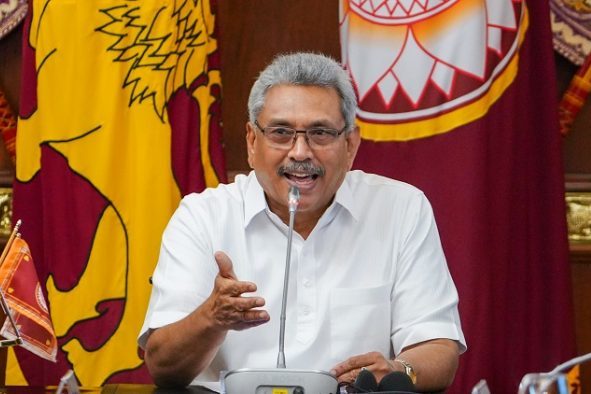
Jul 29, 2020 | Advocacy
The Sri Lankan government should end the targeted arrests, intimidation and threats against the lives and physical security of lawyers, activists, human rights defenders and journalists, the ICJ and 9 other international human rights organizations said today.
A campaign of fear has intensified since the 2019 presidential election, and has cast a shadow over the 2020 parliamentary election campaign.
The United Nations, as well Sri Lanka’s partners and foreign donors, should immediately call for full respect, protection and fulfillment of the human rights of all Sri Lankans, and particularly to halt the reversal of fragile gains in the protection of human rights in recent years.
Numerous civilian institutions, including the NGO Secretariat, have been placed under the control of the Defence Ministry. Serving and retired military officers have been appointed to a slew of senior government roles previously held by civilians.
The authorities have recently established military-led bodies such as the Presidential Task Force to build “a secure country, disciplined, virtuous and lawful society,” which has the power to issue directives to any government official. This represents an alarming trend towards the militarization of the state.
Many of those in government, including the president, defense secretary, and army chief, are accused of war crimes during the internal armed conflict that ended in 2009.
Since the presidential election in November 2019, anti-human rights rhetoric intended to restrict the space for civil society has been amplified by senior members of government.
On 6 July 2020, at an election rally, Prime Minister Mahinda Rajapaksa stated that “NGOs will be taken into a special attention under the new government formed after the General Election, specifically, how foreign monies and grants are received to the NGOs from foreign countries and further, activities of the international organizations will be observed.”
The government has also announced a probe into NGOs registered under the previous government.
In the months following the November 2019 presidential election, a number of organizations reported visits from intelligence officers who sought details of staff, programs and funding, in particular, organizations in the war-affected Northern and Eastern provinces of the country. Such visits are blatant attempts to harass and intimidate Sri Lankan civil society.
In February, the acting District Secretary in the Mullaitivu District (Northern Province) issued a directive that only non-governmental organizations with at least 70 percent of their activities focused on development would be allowed to work, effectively enabling arbitrary interference with and prevention of a broad range of human rights work.
A Jaffna-based think-tank was visited several times, including soon after the Covid-19 lockdown, and questioned about its work, funding and staff details.
Lawyers taking on human rights cases have been targeted through legal and administrative processes and have faced smear campaigns in the media.
Journalists and those voicing critical opinions on social media, have been arbitrarily arrested. The UN High Commissioner for Human Rights expressed alarm at the clampdown on freedom of expression, including the 1 April announcement by the police that any person criticizing officials engaged in the response to Covid-19 would be arrested.
It is unclear whether there is any legal basis for such arrests. The Human Rights Commission of Sri Lanka has cautioned against “an increasing number of such arrests since the issuing of a letter dated 1 April 2020”.
The targeting and repression of journalists and human rights defenders is not only an assault on the rights of these individuals, but an attack on the principles of human rights and the rule of law which should protect all Sri Lankans.
These policies have a chilling effect on the rights to freedom of expression and association, which are crucial for the operation of civil society and fundamental to the advancement of human rights.
Those working on ending impunity and ensuring accountability for past crimes, and especially victims, victim’s families, members of minority communities, and networks in the Northern and Eastern provinces, are particularly at risk of intimidation and harassment.
The Sri Lankan authorities must end all forms of harassment, threats, and abuse of legal processes and police powers against lawyers, human rights defenders and journalists. Human rights defenders living and working in Sri Lanka should be able to carry out their peaceful human rights work without fear of reprisals, which requires a safe and enabling environment in which they can organize, assemble, receive and share information.
Download:
Sri Lanka-Harassment civil society-Advocacy-2020-ENG (the full statement with additional information, in PDF)
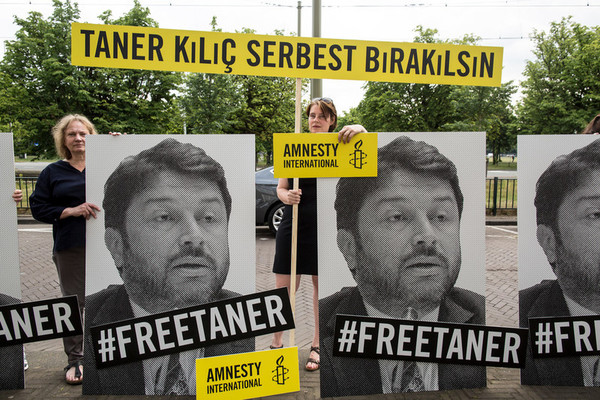
Jul 3, 2020 | News
The ICJ deplores today’s conviction of former Amnesty International Turkey President Taner Kılıç, and former Chair of Human Rights Agenda Association Günal Kurşun, former Director of Amnesty International Turkey İdil Eser and human rights defender Özlem Dalkıran by the Istanbul 35th Heavy Penal Court, on clearly unfounded terrorism charges.
“These convictions, which were clearly revealed to be baseless during the trial, are an alarming setback to efforts to restore the rule of law in Turkey,” said Massimo Frigo, Senior Legal Adviser for the ICJ Europe and Central Asia Programme.
“This prosecution and conviction constitute harassment of human rights defenders, in violation of a number of Turkey’s international legal obligations. The Turkish authorities should be protecting human rights and supporting the important work of human rights defenders, but instead we have witnessed a continuing pattern of arrests on human rights defenders in the country,” he added.
Taner Kılıç has been sentenced to six years and three months of imprisonment for “membership of a terrorist organization. Günal Kuşun, İdil Eser and Özlem Dalkıran were sentenced to one year and 13 months of imprisonment for “assisting a terrorist organisation”. This decision was taken by majority, with one dissenting opinion that called for their acquittal.
The Court acquitted the other defendants in the case: Nalan Erkem, İlknur Üstün, Ali Gharavi, Peter Steudtner, Veli Acu, Nejat Taştan et Şeyhmus Özbekli.
On 6 June 2017, Taner Kiliç, then President of Amnesty International Turkey was arrested on spurious terrorism charges. The other human rights defenders were arrested while attending a training in Istanbul on digital security and information management; also reported arrested were two trainers (reportedly a German and a Swedish national) and the owner of the training venue.
In Turkey, anti-terrorism offences are oftentimes abused and are applied in over-extensive terms to charge and prosecute human rights defenders and political dissenters, as it occurred in this case. The ICJ has highlighted this problem in several reports, including in its submission to the UN Human Rights Council on the universal periodic review of Turkey.
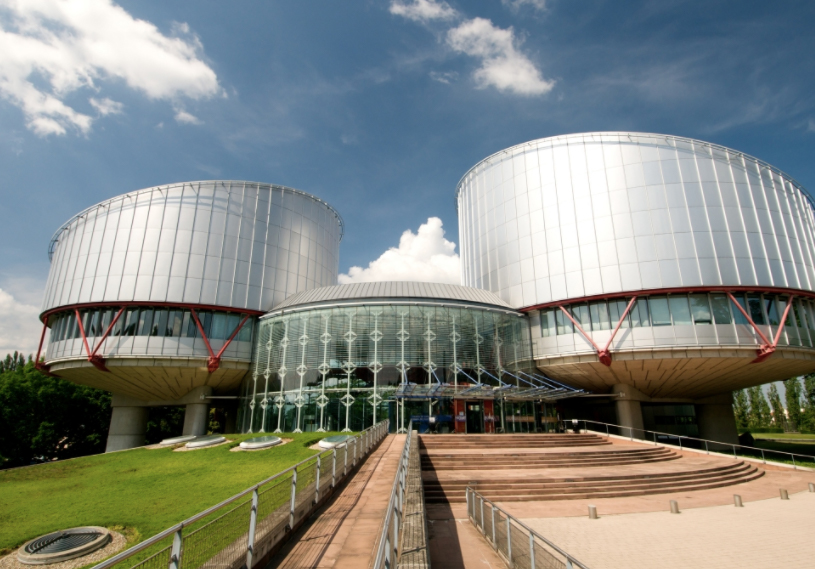
Jun 26, 2020 | Cases, News
The ICJ today welcomed the judgment by the Court in the case of Bagirov v. Azerbaijan. It found that the suspension from legal practice and subsequent disbarment of Khalid Bagirov violated his rights to freedom of expression and to respect for private life under Articles 10 and 8 of the European Convention on Human Rights (ECHR).
Khalid Bagirov’s suspension from the practice of law was based on his public criticism of ill-treatment by the police, following the wide media coverage of the death of an individual in police custody. Later he represented the victim as a lawyer in the proceedings.
His subsequent disbarment arose from his remarks about a judge made in the courtroom when representing his client in another high-profile case.
The ICJ intervened in this case as a third party, providing an evaluation of the State’s obligation to protect the right to freedom of expression of lawyers in light of international standards on independence of the lawyers and the consequences of disciplinary proceedings for lawyers’ rights under Articles 8 and 10 ECHR.
The ICJ calls on the Azerbaijani authorities to fully and promptly implement the judgment, including by taking steps to restore Khalid Bagirov as a member of the Azerbaijan Bar Association.
“Khalid Bagirov must now be reinstated as a lawyer and be allowed to resume his legal practice in Azerbaijan,” said Massimo Frigo, ICJ Senior Legal Adviser.
“But in addition, this judgment shows that measures need to be taken to address the systemic problem of unjustified disbarments of lawyers who seek to defend human rights in Azerbaijan. Reforms are needed to ensure that the disciplinary process is independent and fair and that penalties are proportionate.”
In its judgment of 25 June 2020, the Court held under Article 10 of the Convention that the reasons given by the domestic courts in support of Khalid Bagirov’s disbarment were not relevant and sufficient, and that the sanction imposed on him was disproportionate to the legitimate aim pursued, having highlighted that “the disbarment cannot but be regarded as a harsh sanction, capable of having a chilling effect on the performance by lawyers of their duties as defence counsel”.
In relation to Article 8 ECHR, the Court further noted that “…in a series of cases it has noted a pattern of arbitrary arrest, detention or other measures taken in respect of government critics, civil society activists and human rights defenders … Against this background, the Court underlines that, notwithstanding the duties, in particular, with respect to their conduct, with which all lawyers must comply, the alleged need in a democratic society for a sanction of disbarment of a lawyer in circumstances such as this would need to be supported by particularly weighty reasons” which had not been established in this case.
In respect of the suspension of the lawyer, the Government contended that the interference with Mr Bagirov’s rights to private life and freedom of expression had been prescribed by law and pursued the legitimate aims of preventing the disclosure of information received in confidence or maintaining the authority and impartiality of the judiciary.
The Court found that, he was not the victim’s lawyer when he made the impugned statements about the police, furthermore, the Court mentioned that it did not find any provision of domestic law preventing a lawyer from calling for peaceful protests against police brutality for the purpose of preventing violence.
The Court further found that while Mr Bagirov’s remarks, about a judge’s lack of capacity, were capable of being offensive, the sanction imposed on him did not struck a fair balance between the need to protect the authority of the judiciary and the need to protect his rights to private life and freedom of expression.
In this connection, the Court stated that inter alia, Mr Bagirov had confined himself to making a statement in a courtroom as a lawyer, in the context of his objections to the shortcomings of the proceedings.
Background
In addition to its intervention in Bhagirov v Azerbaijan, the ICJ has also intervened as a third party in other cases of lawyers from Azerbaijan (Hajibeyli and Aliyev v. Azerbaijan, nos. 6477/08 and 10414/08, § 54, 19 April 2018).
In 2019, the ICJ published recommendations to the Azerbaijan Bar Association on the role and independence of Lawyers,
In 2016, the ICJ published a mission report Defenceless Defenders: Systemic Problems in the Legal Profession of Azerbaijan
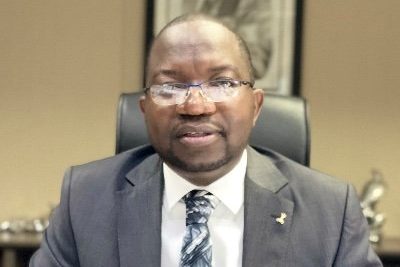
Jun 9, 2020 | News
As of 9 June, at least ten prominent lawyers have been arrested and criminally charged in Zimbabwe.
Among them, Advocate Thabani Mpofu (photo), Advocate Choice Damiso, Mr Tapiwa Makanza and Mr Joshua Chirambwe have been arrested and charged with the crime of defeating or obstructing the course of justice.
These lawyers are alleged to have falsified information in the papers filed in a legal matter in which they were representing a citizen, who was challenging the legality of President Mnangagwa’s decision to appoint Mr Kumbirai Hodzi as the Prosecutor General.
Mr Dumisani Dube was arrested on similar charges but his charges arise from a different case.
Mr Patrick Tererai was charged with disorderly conduct after he demanded access to his client who had been detained at a police station.
The ICJ notes that the criminal charges laid against all the six lawyers are linked to the performance of their duties as legal practitioners.
The ICJ reminds the Government of Zimbabwe of its domestic and international obligations pertaining to the right to fair trial and protection of the independence of lawyers, as underscored in the United Nations Basic Principles on the Role of Lawyers and the African Commission on Human and Peoples’ Rights Principles and Guidelines on the Right to a Fair Trial and Legal Assistance in Africa
These elaborate standards relevant to the right to a fair trial including under article 14 of the International Covenant on Civil and Political Rights (ICCPR) and article 7 of the African Charter on Human and Peoples’ Rights.
Of particular significance is Principle 16 of the UN Basic Principles which states that “Governments shall ensure that lawyers are able to perform all of their professional functions without intimidation, hindrance, harassment or improper interference;…. and [lawyers] shall not suffer, or be threatened with, prosecution or administrative, economic or other sanctions for any action taken in accordance with recognized professional duties, standards and ethics.”
In addition, Principle 20 provides that “Lawyers shall enjoy civil and penal immunity for relevant statements made in good faith in written or oral pleadings or in their professional appearances before a court, tribunal or other legal or administrative authority.” Similar provisions are included in Part I of the African Principles and Guidelines.
A lawyer would not generally be immune from criminal proceedings where allegations of perjury or intentionally providing false information to a court were well-founded.
In relation to this recent group of cases, the Law Society of Zimbabwe has expressed the concern that the arrests appear calculated to hinder the members of the profession from undertaking their professional duties.
In this context, the ICJ calls upon the Government of Zimbabwe to ensure that the right to fair trial for these lawyers is fully respected and that the criminal charges brought against these lawyers are not abused to subvert the independence of the legal profession.
“The arrest of ten lawyers within one week on criminal allegations arising from the performance of their duties as legal practitioners is a cause of concern. The state must ensure that these cases are handled fairly and that the criminal justice system is not abused to harass and intimidate lawyers who represent clients who are perceived as political opposition to the sitting government,” said ICJ Africa Director Arnold Tsunga.
Of late, Advocate Thabani Mpofu has represented opposition leader Mr Nelson Chamisa in a series of cases. These include the presidential election petition and the cases in which Mr Chamisa’s rise to the leadership of the opposition party has been challenged.
Contact
Arnold Tsunga, Director of the ICJ Africa Regional Programme, t: +263 77 728 3248, e: arnold.tsunga(a)icj.org
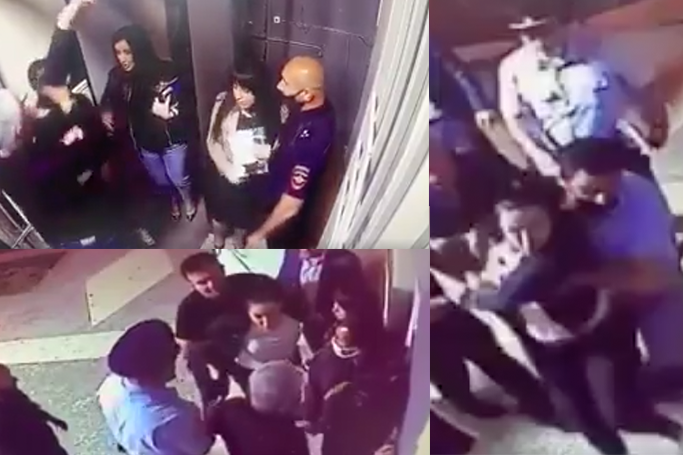
Jun 2, 2020 | News
The ICJ has called on the Russian authorities to institute a prompt, independent and thorough investigation into the recent use of physical force against lawyers Natalia Magova, Diana Sipinova and Liudmila Kochesokova and detention of Diana Sipinova by officers of the Ministry of Interior in the Kabardino-Balkaria Republic.
Those responsible should be held accountable, the ICJ stressed.
According to the lawyers and as corroborated by video recordings available online, they arrived in the Department of the Ministry of Interior in the Kabardino-Balkaria Republic to represent their client Ratmir Jilokov, another lawyer who was detained on 20 May 2020, also following alleged violence against him by the police.
Despite the lawyers’ requests to have access to their client, they were not allowed to meet him. Instead, they were removed from the building of the Department of the Ministry of Interior with the use of physical force by several officers, which resulted in an altercation.
Moreover, Diana Sipinova was detained in the building of the Department for several hours. Both she and Ratmir Jilokov were later released.
“The use of physical force against the lawyers to prevent their meeting their client was clearly contrary to international human rights law and standards, including those on the role of lawyers,” said Temur Shakirov, Senior Legal Adviser of the ICJ Europe and Central Asia Programme.
The ICJ also raised concerns at the criminal proceedings against lawyer Diana Sipinova, following the incident of 21 May 2020, and Ratmir Jilokov, who was detained on 20 May 2020 apparently in connection with having tried to defend a client’s premises from what he considered to be an unlawful search by the authorities.
Both are accused of having used violence against police officers.
Reportedly, the criminal proceedings against Diana Sipinova and Ratmir Jilokov were instituted following their complaints of being subjected to physical attack by the officers of the Ministry of Interior of the Kabardino-Balkaria Republic.
The ICJ highlights that as provided by the UN Principles on the Role of Lawyers, States must ensure that lawyers are able to perform all of their professional functions without intimidation, hindrance, harassment or improper interference and that they do not suffer, or be threatened with prosecution for any action taken in accordance with recognized professional duties, standards and ethics.
International human rights law further guarantees the right of a person deprived of liberty to meet with his or her lawyer.
The authorities should take effective measures to prevent such acts against lawyers in the future, and to ensure that lawyers are not prevented from representing their clients in accordance with law, the ICJ said.
The ICJ furthermore calls on the authorities to terminate the criminal investigations against the lawyers in connection with their attempts to meet with and defend their clients’ interests, and for any other action they have taken in relation to the representation of their clients that was in accordance with their professional duties, standards and ethics.
Background information:
Natalia Magova, Diana Sipinova and Liudmila Kochesokova are lawyers based in Kabardino-Balkaria Republic in the North Caucasus part of the Russian Federation.
According to the official website of the Investigative Department of the Investigative Committee of Kabardino-Balkaria, Diana Sipinova and Ratmir Jikolov are charged with the criminal offence provided for by Article 318.1 (use of violence which does not endanger life or health against the public officials in connection with the performance of their duties) of the Criminal Code of the Russian Federation.
In particular, Diana Sipinova is charged with having used violence against officers of the department of the Ministry of Interior of Kabardino-Balkaria Republic when she requested access to her client on 21 May 2020. Ratmir Jilokov is charged with having used violence against the police officers who arrived in the office of his client to conduct a search on 20 May 2020.
On 30 May 2020, the first instance court imposed the preventive measure for Diana Sipinova of prohibition of certain activities for two months.
Lawyer Ratmir Jilokov, who was detained on 20 May and released on 21 May 2020, claims that the officers who arrived in his client’s office for a search failed to provide him with any legal grounds or the document authorising the search, and that he was subjected to violence when he had challenged the unlawfulness of the officers’ actions. The first instance court imposed the preventive measure of prohibition of certain activities for two months in respect of him.
The Federal Chamber of Lawyers of Russian Federation expressed their support to the lawyers and criticized the interference with their professional functions and actively participated in the defence of the lawyers.
The ICJ has previously raised concerns at violence and intimidation against Russian lawyers.









